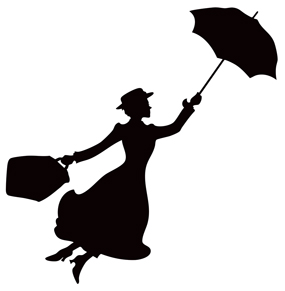
Caimeen Garrett worked as a nanny and later employed one after the birth of her son. “You see people’s dirty laundry—sometimes literally,” she says. “The nanny enjoys a remarkable intimacy with the family, yet ultimately stands apart from it.” Garrett explores that dichotomy and depictions of “second mothers” in film, fiction, memoir, and more in A Problem Like Maria, part of AU’s Complex Problems seminar series for first-year students.
Q. What narratives do you explore in class?
A. I’ve always been interested in the governess novel—Jane Eyre and The Turn of the Screw—so we start there, with the Victorian governess and her status as a threshold figure, suspended between the middle and working class. We also talk about “magical” nannies, free spirits like Mary Poppins and The Sound of Music’s Maria, who heal the family then either move on or marry the father. Then, of course, there are the Lifetime movie-of-the-week nannies: the rival who steals the husband and the children or the evil one who hurts them.
Q. What are the real-life complexities between nannies and families?
A. The nanny walks an emotional tightrope. If she doesn’t care about and invest in the child, the job becomes drudgery. And yet if she does love the child—and sometimes these are women who left their own children behind in another country and are transferring that love to the child in their care—she may be devastated when the job ends.
The nanny also has to be mindful of the mother’s feelings, and navigating who does what can be a minefield. Mothers may decide, “The nanny will do this task, but I’m the only one who makes the lunches or does the baths.” Another source of tension is [conflicting] values and beliefs about parenting, as nannies often come from different cultures, classes, and backgrounds.
From the employer’s perspective, you often see the nanny as part of your family, but you’re never really part of hers. She’s in your home, but you’ve probably never been to hers. I think it’s interesting that there’s so much intimacy, but a lot of it goes just one way.
Q. What do students take from the class?
A. I want them to see the complexity of the issue and understand all the variables at play: race, gender, ethnicity, globalization, feminism, motherhood. I also want them to interrogate their own beliefs about motherhood and child care and to be open to different perspectives.